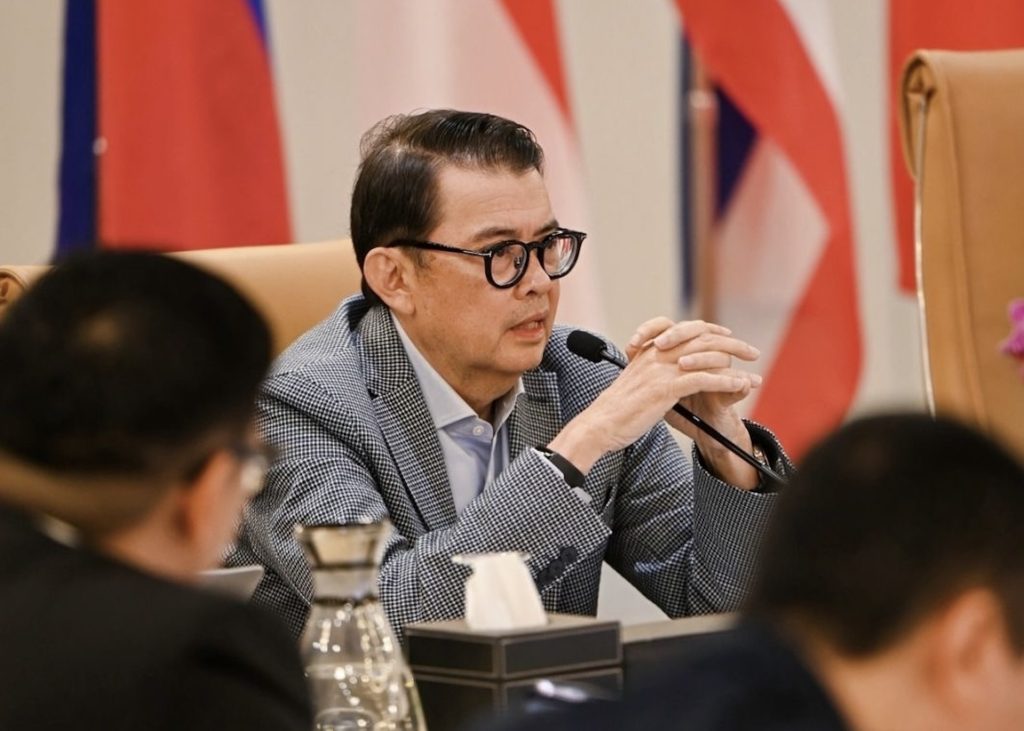
Go Negosyo Holds First-ever Entrepreneurship Event for Creatives
May 31, 2025
Go Negosyo Holds Back-To-Back Events for MSMEs in Luzon and Visayas
June 7, 2025
Shared Prosperity Means No One is Left Behind
The previous weeks have been a flurry of activity. I traveled to Kuala Lumpur, Malaysia, for the 46th ASEAN Summit and delivered a speech before the leaders of the ten ASEAN countries (plus Timor-Leste) during the 103rd ASEAN BAC Council Meeting Interface with ASEAN Leaders.
I took it as an opportunity to introduce the Philippines’ planned legacy project, the ASEAN Food Security Alliance (AFSA), when the country assumes the chairmanship in 2026. Each country initiates a legacy project as it becomes chair for the year. In the last chairmanship of the Philippines, we chose the ASEAN Mentorship for Entrepreneurs Network as our legacy project, in line with our advocacy to promote MSMEs and mentorship as catalysts for growth and regional economic cooperation.
Food security is key to economic stability and social well-being. Securing food systems means securing livelihoods, especially in rural areas where there is a lot of agricultural activity. Making food security a business agenda aligns with ASEAN’s broader goals of inclusive growth, poverty reduction and resilience, particularly against global shocks amid climate change and supply chain disruptions.
AFSA was created to meet this challenge head-on. As a regional platform, our mission is to strengthen regional cooperation and value chain development on ASEAN’s food systems. With AFSA, we hope to drive scalable solutions, including in agri-tech and sustainable farming, by facilitating dialogue and partnership among agribusiness companies, relevant institutions, policymakers and other key stakeholders.
But why food security, and why is this being done through the private sector? Simple: the private sector brings speed, scale and solutions.
Agribusinesses have the scale, expertise and innovation needed to drive real impact. By forming a ‘Big Brother’ coalition of agribusinesses, we are fostering partnerships that enable knowledge and technology transfer, investment and collaboration. This allows us to not only increase productivity but also ensure more inclusive participation of smaller farmers in the value chain.
The trip to Malaysia also bore fruit: we formalized our intent to collaborate in Agriculture Technology with Malaysia Digital Economy Corporation (MDEC). Through MDEC’s Digital Agriculture Department and Go Negosyo’s partnership, we aim to accelerate the adoption of digital tools among farmers and agripreneurs, and empower them with technology to improve yield, reduce waste and build sustainable practices that future-proof agriculture in the region.
We’re actively engaging with our counterparts in the ASEAN member-states. Already, we have active engagements with Malaysian companies and have started exploring partnerships with stakeholders in Indonesia, Brunei, Thailand and Cambodia. These collaborations are vital for understanding local contexts, sharing best practices and building a truly integrated regional strategy.
Regional cooperation will be crucial if we are to build a sustainable future for ASEAN. Next year will be especially important for the Philippines as it chairs the ASEAN. It will represent a pivotal moment to reaffirm the country’s leadership and deepen its commitment to regional integration and cooperation. For President Marcos, it will serve as a major international milestone of his administration and an opportunity to leave a lasting legacy on the regional stage.
This chairmanship comes at a critical time. Now more than ever, it is important to focus on priorities that directly impact the lives of Filipinos, particularly our MSMEs.
ASEAN 2026 presents a unique platform to shape the regional agenda on key issues like economic recovery, digital transformation, climate resilience and inclusive growth. It is also a strategic opportunity to champion the interests of developing economies within ASEAN and to promote policies that foster equitable trade, sustainable development and stronger regional cooperation.
For Filipino MSMEs, this is a gateway to wider regional markets, a more harmonized policy environment and enhanced access to finance, innovation and capacity-building support. As ASEAN Chair, the Philippines can take the lead in positioning its local enterprises to thrive in the evolving ASEAN Economic Community and beyond. By seizing this moment, the Philippines can amplify its voice in ASEAN, strengthen its regional partnerships and deliver tangible benefits to Filipinos.
Our strong engagement at the 46th ASEAN Summit and forward-looking initiatives like AFSA and digital MSME platforms reflect our broader mission: to lead with purpose and impact.
Digital innovation is at the heart of our strategy. From AgTech to improve farm productivity, to e-commerce and fintech tools to empower MSMEs, technology will be the great equalizer. It will bridge gaps in access and enable inclusive participation in economic growth.
Back in 2017, during our ASEAN chairmanship, the Council rallied behind the theme “Prosperity for All.” That vision remains not only relevant but also aligned with ASEAN 2025’s focus on “Inclusivity and Sustainability” under Malaysia’s leadership.
Looking ahead, we see new opportunities for the Philippines to lead in key sectors like tourism and the creative industries, as well as women and youth entrepreneurship, to expand impact and build a more dynamic regional economy.
These efforts signal our deep commitment to inclusive growth and regional cooperation as we prepare to take on the ASEAN chairmanship again in 2026. With AFSA and several collaborations with our ASEAN neighbors already in motion, the Philippines aims to lead with purpose and unity, ensuring that no one is left behind in the region’s journey toward shared prosperity.


2/F RFM Corporate Center, Pioneer cor. Sheridan Sts. Mandaluyong City, Metro Manila, Philippines

